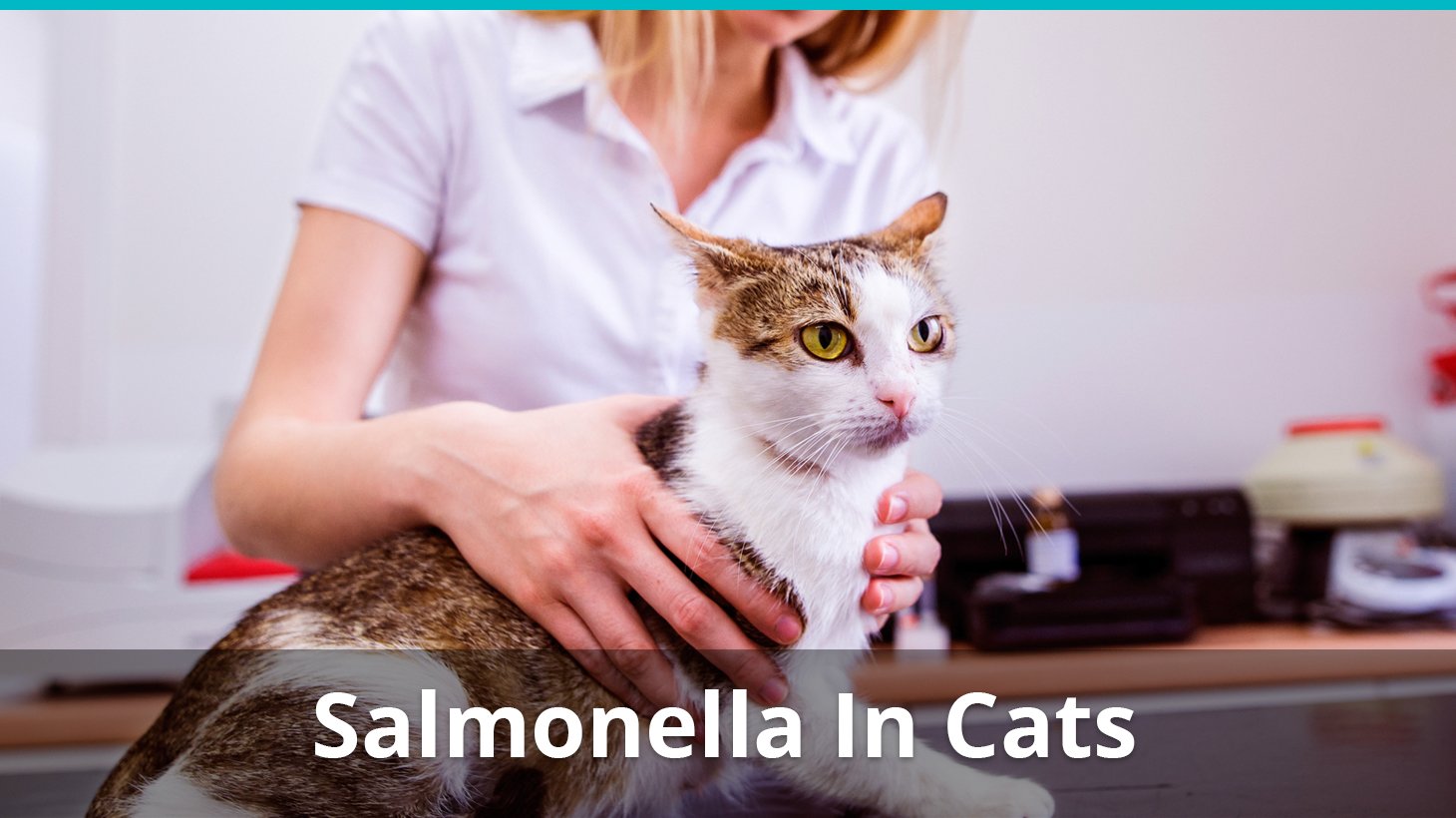Similar to human beings, cats can get salmonella.
Felines are carnivores and as such, they get their primary nutrition from meat. Unfortunately, meat isn’t the only risk factor when it comes to salmonella. Your cat can get the infection from various sources.
Young kittens and senior cats are more vulnerable to salmonella than adults are. Their immune systems are either compromised by their declining years or still haven’t developed fully.
Of course, fully grown adult cats are also prone to suffering from salmonella, especially if they’re on antibiotic therapy or if their immune system is somehow weakened.
There is no ultimate way to prevent your kitty from contracting the infection. However, there are ways to lower the risks. Before we delve further into the issue, let’s focus on what salmonella is and how it affects your cat.
What Is Salmonella?
In a nutshell, salmonella is a bacterium that causes salmonellosis, a type of food poisoning. It affects cats, dogs, and humans alike.
The infection triggers various problems in the cat’s gastrointestinal system. It can also lead to issues such as dehydration, weight loss, and diarrhea, and the latter can last for several weeks without any logical explanation.
Symptoms Of Salmonella In Cats
The most common symptoms of salmonella poisoning in cats are the following:
- Fever
- Vomiting
- Diarrhea
- Lethargy
- Shock
- Skin disease
- Dehydration
- Mucus in the stools
- Extreme heart rate increase
- Swollen lymph nodes
- Weight loss
Not all cats will experience the most obvious indicators, such as vomiting or diarrhea. The symptoms depend on the severity of the infection and the kitty’s current immune system condition. If you’re suspecting that there’s something wrong with your feline furball, you should immediately schedule an appointment with the vet.
What Causes Salmonella?
Cats can contract the infection from raw or cooked meat, dairy products such as eggs, and contaminated water. They can also get it from eating an already infected animal or from coming into contact with its feces.
Raw meats are the primary factors for contracting salmonella. If you’re feeding your kitty on a raw diet, make sure you’re purchasing only high-quality food items and practicing proper food safety techniques.
The bacteria can survive even in processed meat, so you may want to try to limit your furball to cooked food items. Feed your cat only with high-quality cat food items and try to stay away from raw meat and eggs, if salmonella is a big concern.
Moreover, salmonella bacteria can also survive on various surfaces over long periods. This includes cat toys, clothes, and furniture items. As such, if you’ve treated your kitty against salmonellosis, you should also thoroughly clean your house or apartment.
Another option is to keep your furball strictly indoors. Apart from salmonella and fleas, your cat will be exposed to other diseases if you allow it to roam outdoors.
Treatment And What To Do If Your Cat Has Salmonella Poisoning
Don’t panic. Salmonella poisoning isn’t uncommon for cats, dogs, or humans. So if your kitty catches it, you just have to schedule an appointment with your vet.
Your doctor will carry out full blood, urine, and feces tests on your cat to determine the diagnosis. In uncomplicated cases of salmonellosis, your furry pal won’t need to be hospitalized. The treatment will aim at helping your pet overcome its dehydration, weight loss, and shock.
The vet might order a 48-hour food restriction period, depending on the severity of the poisoning. If your furball’s case is complicated, it will need to be hospitalized and separated from you for a short period.
Keep your precious feline pal strictly indoors. If you’re one of those cat owners, who take their pets for a walk, pay attention to where your cat is stepping and the things it’s sniffing.

